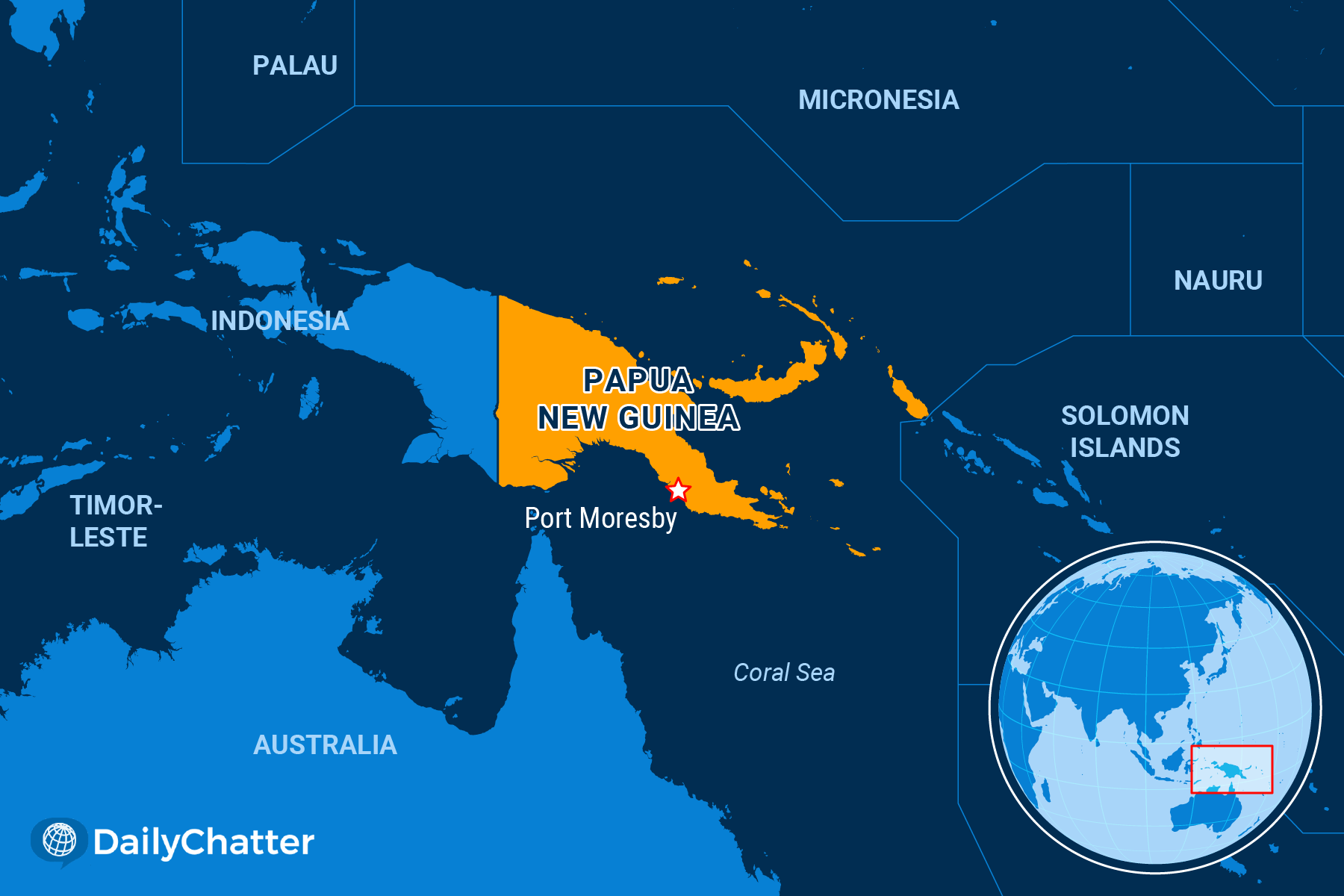NEED TO KNOW
A Playing Field
PAPUA NEW GUINEA

The world is wooing Papua New Guinea, a poor country to the north of Australia that shares an island with Indonesia.
As the Economist wrote, French President Emmanuel Macron, Indian Prime Minister Narendra Modi, Indonesian President Joko Widodo, US Secretary of State Antony Blinken, and US Defense Secretary Lloyd Austin have visited the capital of Port Moresby over the past year for meetings with James Marape, the country’s prime minister.
These events were intended, without question, to counter China’s growing influence in the region, the Associated Press reported. Austin, for example, visited to cement closer security ties at a time when many fear that China might take a page from Russia’s geopolitical playbook and seek to invade its own neighbor, Taiwan.
Papua New Guinea is one of many examples of this tension. While visiting the region, Macron, for instance, issued grim warnings about predatory behavior by big powers that he pledged to help counter. He didn’t mention China by name, but it was clear whom he was talking about, according to Reuters.
“There is in the Indo-Pacific, especially in Oceania, new imperialism appearing and a power logic which is threatening the sovereignty of many states, the smallest and often the most fragile ones,” he said in Vanuatu. “The modern world is shaking up the Indo-Pacific’s sovereignty and independence. First, because of the predation of big powers … foreign ships fish illegally here. In the region, many loans with Leonine conditions strangle up development.”
Macron’s remarks were ironic. A growing minority of residents of the French territory of New Caledonia in the South Pacific would like to secede from the mother country. Analysts told Radio France Internationale that China would certainly dominate New Caledonia if it became independent.
China has also been extending its influence in the region through two means. First, the country has been converting disputed islands in the South China Sea into airstrips, the Messenger wrote. Such moves have triggered a race to establish military bases, supply routes, and other logistical points for potential conflicts, the Brookings Institution argued.
Second, China has also been financing major infrastructure projects throughout the Pacific. These projects help China’s export-oriented economy, but also create debtor nations that owe China. A Chinese bank, for example, is Vanuatu’s biggest lender. During a visit to Tonga, Blinken called this financial support “predatory,” according to Al Jazeera.
The US, furthermore, is late to the party. After the end of the Cold War – when the West countered Soviet diplomacy in the Pacific – the Americans closed many of their embassies in the region, the Washington Post reported.
This neglect has had consequences. Leaders in the Solomon Islands have signed defense and security agreements with China despite the objections of politicians in Washington, DC.
It’s a race for hearts, minds, and wallets.
THIS STORY HAS BEEN UPDATED
To read the full edition and support independent journalism, join our community of informed readers and subscribe today!
